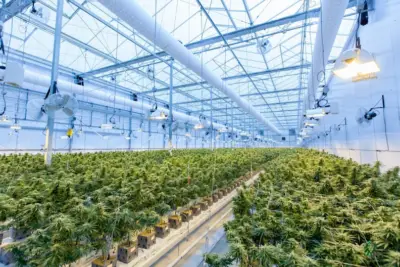
The sale of cannabis products by licensed shops may have started in 2022 – one year after its legalization was signed into law by Gov. Ned Lamont. But like nearby states that have legalized marijuana, the rollout has been anything but smooth.
That is because the process to license legal shops, other than the existing medical marijuana retailers that have chosen to expand under the law, there has been a plethora of unlicensed places that have not waited for a license.
They have popped up all over Fairfield County as well as the state. With names like “Puff City,” “Smoke City,” “Slow Puffs,” “Puff Cloud 9,” these shops bill themselves as smoke and vape businesses. But police throughout the county tell a different story. A recent Google search gleaned more than 45 such shops dotted throughout Fairfield County. As for licensed shops, there are only 10 in the county and 51 in the state, according to the state Department of Consumer Protection.
“Since 2021, we have seen a huge explosion in the illegal, unregulated sales of cannabis and other dangerous high THC products in many commercial establishments in town under the guise of smoke shops,” said Norwalk Police Chief James Walsh. “(The products) look like things you would see everyday in a convenience store and think these are legal. It’s not just raw cannabis we are looking for.”
During an Oct. 15 Family & Children’s Agency webinar, Walsh was joined by FCA Jessica Vivenzo, manager of FCA’s Project Reward program, and Margaret Watt, prevention director at Positive Directions, to discuss unlicensed marijuana.
“We have been very vigorous in the investigation of these sales,” said Chief Walsh. “We have had well over a dozen investigations that were successful and led to many arrests. We recovered hundreds of pounds of unregulated uninspected marijuana, which can be dangerous.”
Walsh shared that closing down such unlicensed shops is not so easy. The police department has to work with the municipality to make sure there is legislation and planning and zoning rules in place that dictate how those businesses can operate.
“People do have a right to conduct business,” he said. “We have to work with city governments to see if the businesses are continually involved in criminal enterprise. And then we have to work with our local municipal government to enact code and legislation to prevent the further sales of these (products).”
Testing and enforcing the law
One of the biggest challenges for law enforcement, Walsh says, is that they don’t have the ability to inspect the shops. “The health department does have the ability to do that,” he said. “We need a warrant to search the premises. That take months of investigation to get to that point.”
In her job, Watt oversees counseling and drug prevention for the clients at Westport-based Positive Directions. She has studied and seen firsthand what drug use, even marijuana, can do to the people who come to her seeking help.
“It’s not just the unlicensed marijuana that’s unsafe,” said Watt. “For youth, cannabis and other substances impact directly the part of the brain that’s still developing … there are multiple studies that show up to eight points of IQ loss in teens who use marijuana a couple of times a week.”
She pointed out that the dangers that smoke and vape shops without cannabis licenses pose to the general public, specifically those under the legal age of 21.
“A lot of it is trying to make sure that the (product) for use by those over the age of 21 is tested,” she said. “The amount of product you get and the amount of THC is supposed to be labeled. You are supposed to know what you are getting. So, when people are getting stuff from vape shops – these are places that just sell vapes. They aren’t licensed to sell cannabis. This is a street drug. No one is testing it.”
As of July 1, 2021, possession and use of up to 1.5 ounces of cannabis has been fully legal. Connecticut residents may also store up to 5 ounces in a locked container at home or transport it in a locked glovebox or trunk. A cannabis license from the Department of Consumer Protection is not required to sell products that are not cannabis or high-THC hemp products, with the exception of THC-infused beverages.
Fentanyl-laced cannabis
While the police and department of consumer protection are focused on the illegal unlicensed sales of cannabis products, the sales of those products that are laced with such powerful and deadly drugs as fentanyl worries them the most.
“Most people don’t know if the drug is laced until they have consumed it … the risk for overdose for marijuana laced with fentanyl or xylazine is incredibly high,” said Vivenzo. In her job, she sees the effect such drugs have on her clients and their families.
“One of the drug busts that the chief’s department included marijuana that had fentanyl in it. Fentanyl is a drug that are very frequently fatal,” she added.
Additionally, she has found instances where some of the drugs sold by vape shops or on the street include mold because they have been sitting around in damp conditions. Sometimes, even mold can just be as dangerous as other laced drugs when smoked, Vivenzo said.
Licensed shops
The Adult-Use Cannabis licenses that have so far been awarded by the state are for backers, cultivators, delivery service, food and beverage manufacturers, and hybrid retailers.
As of Oct. 17, the only licensed shops in Fairfield County are:
- Affinity Dispensary and Higher Collective in Bridgeport
- Fine Fettle and Shangrila in Norwalk
- Fine Fettle and Sweetstop Dispensary in Stamford
- Budr Holding and The Botanist in Danbury
- Budr Holding in Stratford




















